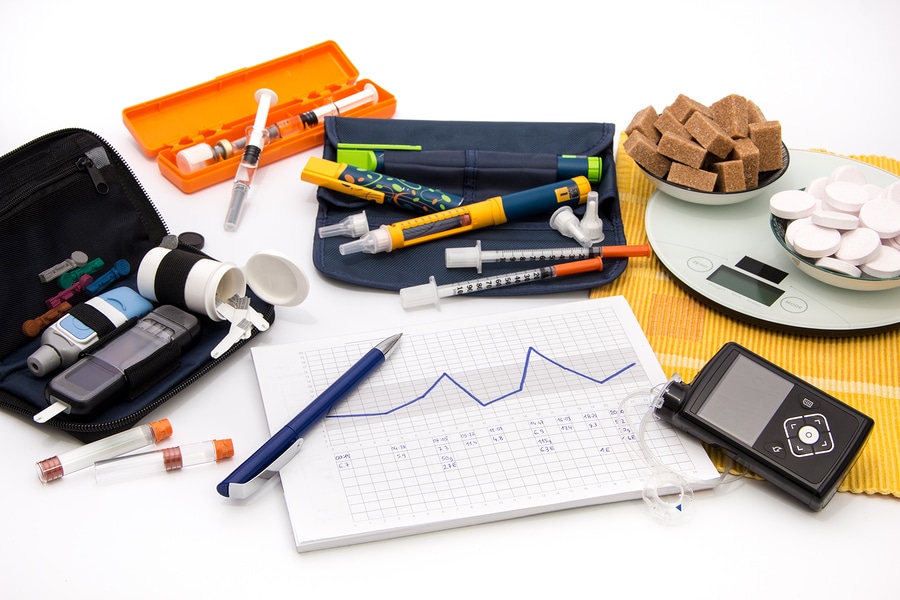Most people with diabetes keep several bottles of insulin on hand. Insulin needs to be stored properly to ensure it remains effective. Sunlight, indoor lights, and temperature extremes can all cause problems. Family caregivers for older adults with diabetes need to know the ins and outs of insulin storage.

-Does Insulin Always Have to Be Refrigerated?-
According to the American Diabetes Association, injecting cold insulin can be painful. They say that it’s actually okay to store the bottle a diabetic is currently using at room temperature. At room temperature, insulin is good for 28 days.
When storing insulin at room temperature, it’s important to observe some safety practices, such as:
-Temperature Control: The temperature of the area the insulin is being kept in should not be above 86 degrees or below 36 degrees Fahrenheit. If the temperature is likely to fluctuate, it’s best to store the insulin in the refrigerator.
-Avoid Light: Keep the insulin out direct sunlight by placing it in a cupboard or otherwise shielding it from the light.
-Don’t Leave Insulin in the Car: The temperature of the inside of a car can fluctuate greatly. In warm weather, it can get extremely hot. In cold weather, it can quickly drop below freezing.
-Insulin Storage Tips-
Family caregivers can help seniors to ensure their insulin is stored safely by following these tips:
-Store Excess Insulin in the Refrigerator: Keep extra bottles of insulin in the refrigerator set between 36 and 46 degrees Fahrenheit. Make sure it does not freeze as it will become unusable. Thawing the insulin will not make it usable.
-Avoid Heat Sources: For insulin being kept at room temperature for immediate use, avoid setting it near heat sources such as a hot stove or a furnace vent.
-Check the Expiration Date: Insulin vials and pens are stamped with an expiration date. Never use insulin past the printed date.
-Write the Date on the Insulin: If you keep a vial or pen outside of the refrigerate for current use, write the date the senior began using it on the insulin. Throw remaining insulin away after 28 days.
-Inspect Before Using: Look at the insulin before using it. Check for color changes or changes in clarity. Make sure the insulin appears clear and doesn’t contain particles or crystals.
Older adults with vision problems might have trouble inspecting the insulin or seeing the expiration date. Family caregivers may need to assist with these steps.
If you or an aging loved-one are considering elderly care in Orinda, CA, call the caring staff at Aviva In-Home Care. Call today: (415) 795-2203
Sources
http://www.diabetes.org/living-with-diabetes/treatment-and-care/medication/insulin/insulin-storage-and-syringe-safety.html
https://www.endocrineweb.com/guides/insulin/how-store-your-insulin
https://www.verywell.com/best-way-to-store-insulin-3289554
http://www.consumermedsafety.org/insulin-safety-center/item/420
- Do You Need Help with Personal Care for Your Senior? - September 16, 2019
- Causes and Risk Factors for Shingles in the Elderly - September 12, 2019
- Five Reasons Your Senior Might Need a Daily Routine - September 5, 2019


